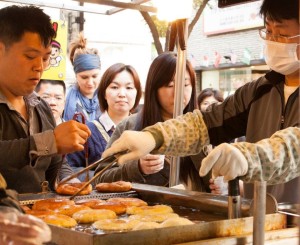5 Types of people who move abroad
5 Types of people who move abroad
Over the years, we’ve seen a lot of expats moving to South Korea and China, and by working with them, amongst others teachers, co-workers, acquaintances and friends, we’ve boiled it down to 5 types of people who generally move abroad.
1.The Culture Freak / The Wanna-bee
Kpop, hangul, Korean movies and slang… He’ll be able to tell you about it all. He’s the one who started studying Korean, before he even knew whether he would ever set foot on the Korea Peninsula , and he has seen every YouTube video about it.
Why teach abroad:
If you have a passion for the country, its cultures and traditions, why would you not go? You’ve seen it all already on the web, so you know all the reasons why you need to go. What are you waiting for?
2. The Traveler
The guy with the list – Not your average To-Do list: This list includes everything that haven’t been mentioned by Trip Advisor and more. This is the guy who would love to see the world and is able to live out of a suitcase. It’s the person who has friends all over the world and enjoy making new connections and trying new things. It is possible that he already knows people in Korea, or that he is interested in traveling to South East Asia.
Why teach abroad
With Japan, Thailand, and China so close, who wouldn’t want to go? This is the ultimate place to teach at, and still be able to visit South East Asia on a budget. You can live the adventure you’ve always dreamed about, you’ll see a different part of the world and you’ll be able to expand your horizons, and fill that passport of yours.
3. The University student
This is the person who just finished college. Excess money is a foreign concept, and the amount of debt is too much to even mention. He does not have work experience in “The Real world”
Why teach abroad
Gaining international teaching experience will be an asset in your future career. This is a great way to set your foot in the door, and still get paid a pretty decent income. Korea is one of the higher paying Asian countries, and the cost of living is quite low. You’ll be able to save anything from $1 – $1000, depending on your spending habits. It is possible to save a lot, without living the lifestyle of a hermit.
4. The Opportunist
Gaining international experience – That’s the dream. He is interested in building an international community of contacts and to enhance his resume with skills and abilities.
Why teach abroad
To work for multinational companies, will create a good career prospective. You’ll be able to expand your skill set and the ability to adapt to different workplaces. Korea will ensure that you are exposed to being flexible, developing communication skills on a different level and being adaptable to circumstances. The world will become your Teacher.
5. The Runaway
He is the one who is unhappy with his life at home. He feels stagnant and might be in a dead-end job. There’s a lack of opportunities at home; It’s a location burnout.
Why teach abroad
By teaching abroad, you’ll be able to create a life for yourself in another country. You don’t need to carry your past with you; you can recreate yourself. Be whoever you’ve always wanted to be… That doesn’t mean that you’re allowed to change your name on your passport though…
You might find better career opportunities, than back home, but ultimately, going abroad makes you more open minded and this might change your perspective of home in a year of two.










 1. You’re going to Korea? No way! My cousin’s friend’s uncle’s niece is also teaching there. What a small world.
1. You’re going to Korea? No way! My cousin’s friend’s uncle’s niece is also teaching there. What a small world.








